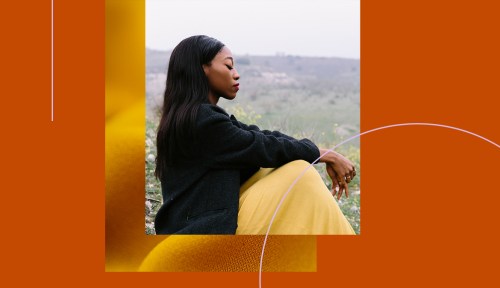Rest Is an Act of Resistance
This year, the idea of “rest as resistance” took hold of the collective consciousness in a new way, thanks to the calls to end systemic racism.

“Black people in this country have never experienced living free,” Tricia Hersey, activist and founder of The Nap Ministry, an organization that advocates rest as a form of resistance, told Well+Good this summer. “In order to imagine [a new world], you have to be able to dig into a place that’s outside of grind culture and that place is the dream space. We won’t be able to imagine, invent, restore, and rebuild this new liberated world without resting.”
Hersey’s vision isn’t a new one: The Nap Ministry was founded in 2016 after Hersey learned about the role rest and sleep play in healing trauma—particularly for Black Americans, who have been denied that basic right for centuries (during slavery, usually as a deliberate form of punishment). This year, as demands for racial equity in the United States reached a fever pitch following the murder of George Floyd, the idea of “rest as resistance” took hold of the collective consciousness in a new way; The Nap Ministry’s Instagram following, for instance, grew by 250 percent this year. And in 2021, growing initiatives and new partnerships are putting this notion into action.
“We see and know that more Black women are paying attention to the fact that their body needs rest and has reached peak exhaustion this year, especially in the past six months,” says Jasmine Marie, founder of black girls breathing, who has seen participation in her breathwork sessions increase 1,000 percent (yep) since May. This fall, black girls breathing launched a re-allocation initiative with a goal of raising $100,000 in order to make its breathwork circles (a safe space for Black women to practice breathwork as a means to “dismantle the effects of systemic racism”) free or low-cost in perpetuity. Athleta and the Movemeant Foundation contributed $30,000 towards this goal in November.
In June, activist and academic Rachel Cargle partnered with Getaway, a vacation-rental platform, for the “100 Nights of Rest” initiative, giving free stays to Black people fighting for change. With a surge of applicants (nearly 8,000 nominations since launch), the company announced in August that it would expand the program to “A Year of Rest” and donate 365 Getaways to Black activists in the coming year. Moving forward, Getaway will continue to offer 100 free stays every year for those fighting for change.
At the grassroots level, the “No Justice, No Sleep” initiative launched in October to supply Black individuals with weighted blankets and body pillows. “Systemic inequity doesn’t sleep—so, often neither do those affected by it,” 25-year-old mutual aid founder Maya Monsour writes on the fundraising page.
“This conversation of rest is at the forefront,” Cargle, who is giving her team three weeks off over winter, said in an Instagram Live with Well+Good. “[Black women] are the center of our communities, our homes, our churches, our organizations. So I’m hoping that as this trend continues, this truth continues—of Black women centering rest—it’ll pour into our children, it’ll pour into other genders within our community.”
Sign Up for Our Daily Newsletter
Get all the latest in wellness, trends, food, fitness, beauty, and more delivered right to your inbox.
Got it, you've been added to our email list.










